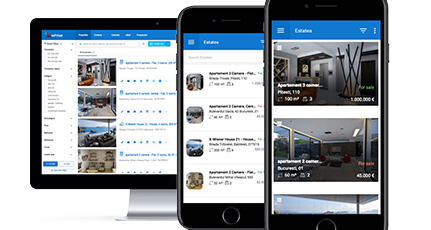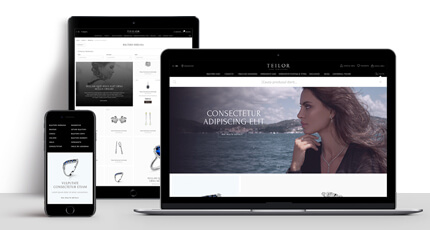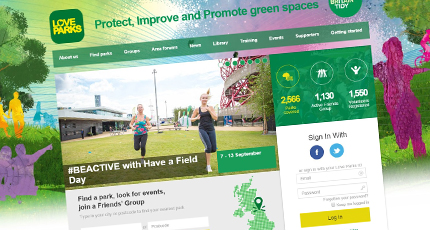From 2011 to nowadays, mobile internet has grown by 504% in daily media consumption. To be more specific – over 4.4 billion people from all over the world are, today, active internet users. Such an impressive number, right?
And this is not all. Take a look at what stats say about users behavior in online:
- Up to 70% of web traffic happens on a mobile device (CIODive);
- The average install-to-register rate of a mobile shopping app increased to 32.8 percent in 2020, up from 29.8 percent in the previous year (Statista);
- 61% of people trust and like the brands that offer a good mobile experience. (HubSpot).
Long story short, developing an app for your business is no longer a matter of choice, but rather it’s a thing you MUST DO next to keep your company relevant on the market.
Until planning to build an app, it’s essential to analyze what users expect from your business and, even more than that, what they may expect from your app:
- modern design;
- intuitive app architecture;
- personalized experience;
- real-time information;
- chatbots and live chats;
- useful stuff only;
- app features that are battery-friendly;
- seamless Logins and Checkouts.
Need to accelerate or adjust the project development
for a mobile app?
Our app developers have the right skills to deliver scalabel apps & full-cycle dev
services for iOS | Android | cross-platform applications.
Get a free project estimation (costs + time)
What Types of Mobile Applications Can You Develop for Your Business? (descriptions, examples, pros & cons)
NATIVE APPS: are mobile apps that are developed for a specific OS (operating system). This means that, for instance, a native mobile app developed for the iPhone can’t be used on Android. The name of “native apps” reflects the fact that they are developed according to the particularities of a specific device or platform. For accessing a native app, a user has to download it from the store (Apple App Store for iOS apps / Google Play for Android), and then an icon will be placed on the home screen of his phone. (Development language: for Android – Java, Kotlin, for iOS – Swift or Objective-C).
HYBRID APPS: are a mix of native apps and web apps. These apps can be found in app stores, need to be installed in the device, and can interact with some features from the device (just like native apps). Hybrid apps are typically written in HTML5, CSS, and JavaScript and rely on HTML being rendered in a browser.
SEE A CASE STUDY FOR A HYBRID APP
WEB APPS: run on web-hosted servers, act like apps, but function as web pages for mobile devices. They are developed based on web technologies (HTML, CSS, Javascript, JQuery) and are accessible without installation.
| Native Apps | Hybrid | Web apps | |
|---|---|---|---|
| OS flexibility | No | Yes | Yes |
| Development costs | Higher | Lower | Average |
| Development time invested | Depends on the complexity | Depends on the complexity | Depends on the complexity |
| Maintenance | High | Average | Average |
| Speed | High | Average | Dependent on internet quality |
| Performance | High | Average | Average |
| Work offline | Yes | Yes | No |
| UX provided | Great | Average | Average |
| Interact with device features | Yes | Partially | No |
| Development skills requested | High | Average | Average |
| Download | Yes | Yes | No |
| Instant adaptation to different screens | High | Average | Average |
| Updates | Frequently | Yes | Always up-to-date |
| Security risk | Average | Average | High |
You can count on us to get consulting services also. Whenever a client needs an app to stand out on the market, we are ready to offer him complete services – from consultancy to development.
Our core mission is to turn customers’ needs & ideas into functional solutions.
So, start to discuss your innovative idea with our experienced developers, and we are going to provide you the tech solution along with a complete dedicated team, ready to take over the entire project development.
How should you promote your app? As a free one or as a paid one?
If you intend to develop an app for your business, most probably you’ve already tried to figure it out which is the right answer.
After a closer look, you’ll realize that “free apps versus paid” is, in fact, a fake debate.

You need a Free App if:
- you are interested in placing your offers closer to your clients and generating multi channels sales;
- you intend to gain brand awareness by attracting a high number of users;
- you want to reduce marketing costs;
- you want to gain customers’ loyalty.

You need a Paid App if:
- you want to turn visitors into revenue generators;
- you are interested in delivering quality;
- you want to gain long-term customers’ loyalty.
Outsourcing the Project or Developing it with Your Internal Teams? What is More Efficient?
Do you really need to hire a development team, or you can count on existing employees and even put on hold some projects?
Every project becomes these days essential for each business growth, so that putting projects on hold shouldn’t be an option. At the same time, recruiting new people for your company generates overwhelming costs that must be sustained during an unpredictable financial context.
So, extending your dev team without hiring new specialists seems to be the right answer to your problem. But is this even possible?
You know you need to hire a development team when:
- you have complex and time-consuming projects;
- you want to develop a project without risking any internal changes – like developers leaving the company or becoming unavailable during the process;
- you intend to manage projects that may involve extended technical skills, technologies, or third-party integrations at some point.
In any of the situations above, there are at least 7 reasons why you should hire a dedicated team instead of trying to recruit new internal staff:
1
Every project counts for growing your company’s portfolio and providing long-term financial stability.
2
Your company gains expanded capabilities, being able to manage a wider range of projects.
3
You can count on higher efficiency. Your internal teams will continue to be focused on the main activities, while the external one will handle new projects.
4
You will upskill your staff and adopt new technologies through an agile approach delivered and supported by a dedicated dev team.
5
More data security. From GDPR-compliances to NDA agreements, you will have all the assurance that your company’s data are used based on the high-security standards approach.
6
Cost predictability since dedicated teams will entirely handle the project’s assets management.
7
You can rely on externalized management and frameworks.
Get more customers through an intuitive, dynamic, and UX optimized mobile app
How to Start Developing Your Mobile App with Roweb’s Teams?
Starting a new project with us it’s easy. Fill the form and send us relevant details about your software development needs, and we’ll get back to you as soon as possible with a project brief or even with a project proposal (if the project requirements sent by you are complete).
Until sending your project requests, there are some things you may want to know about us:
TECHNOLOGIES THAT WE USE:








METHODOLOGIES
- Agile
- Scrum
- Kanban
- Waterfall
ROLES WE PROVIDE
- Project managers
- Business analysts
- Developers
- Q&A specialists
- Scrum masters
- UX Designers




